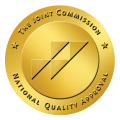Alcohol abuse can lead to serious health complications and has widespread social implications for individuals who have problems with their drinking.
When an individual’s drinking becomes unmanageable, its effects tend to seep into their personal lives. Alcoholism will often negatively impact their attendance and overall performance at the workplace, it affects the relationships of those closest to them. Once a physical dependency on alcohol develops, the individual needs alcohol in their body just to function properly. Alcoholism is a progressive disease. An individual does not become addicted to alcohol overnight, it happens over time. Aside from the impact on family and employment, the health risks of alcohol abuse are long-lasting and serious. Long-term alcohol abuse causes liver damage and raises the risk of a heart attack and the risk of a stroke, drinking can damage the esophagus of the alcohol-addicted individual. Unfortunately, individuals with alcohol use disorder often cannot stop consuming alcohol on their own. Attempts to stop drinking are often met with failure. Many who struggle with alcohol abuse have a difficult time maintaining their sobriety for long periods. They require assistance in the form of professional intervention and the help of clinicians to put the bottle down and keep it down. Once an individual becomes physically dependent upon alcohol, they cannot safely stop on their own due to the potentially life-threatening nature of alcohol withdrawal symptoms. Alcohol-addicted individuals require a medically supervised inpatient alcohol detox facility to ensure healthy and safe stabilization during the alcohol detox process. Once an individual is stabilized from physical dependency on alcohol, they can begin to address the underlying causes of their alcoholism and work towards long-term sobriety from alcohol.
Symptoms of Alcohol Withdrawal
The symptoms of alcohol withdrawal can be life-threatening and potentially fatal. Medical supervision is needed for those individuals struggling with alcohol abuse who wish to stop drinking. Any attempt for the alcohol dependent to stop drinking on their own could result in a fatal outcome. It is for this reason that admission to an inpatient drug and alcohol medical detox is necessary to properly go through the withdrawal process. The symptoms of alcohol withdrawal are:
- High blood pressure
- Irregular and rapid pulse
- Insomnia
- Nausea
- Diarrhea
- Confusion
- Trouble Speaking
- Seizures
- Delirium Tremens (a condition that includes hallucinations, tremors, delusions, & possible seizures)
What Are the Signs of Alcohol Abuse?
There are several signs that an individual is struggling with alcohol abuse. They come out in behaviors and physical signs that can be seen by those closest to them, such as their loved ones. The following are just some of the many signs of alcohol abuse:
- Difficulty maintaining healthy relationships
- Failed attempts to stop or cut back on alcohol consumption
- Continuing to drink despite the negative impact alcohol has on your life
- Isolation and depression
- Drinking alcohol to feel better
- Becoming ill when unable to drink alcohol
If others have expressed to an individual that they drink too much, and that individual has experienced some of these signs in their life, there is a very good chance they suffer from alcohol use disorder. When an alcoholic individual wants to stop or limit their consumption of alcohol and seems to be unable to do so on their own, it is time to seek professional help. Aftermath Addiction Treatment Center, located in Wakefield, MA offers alcohol addiction rehab programs for those who struggle to maintain their sobriety from alcohol.
Alcohol Addiction Rehab Programs at Aftermath Addiction Treatment Center
The alcohol addiction rehab programs at Aftermath Addiction Treatment Center are designed for individuals who struggle with alcohol abuse and wish to achieve long-term sobriety. Individuals seeking relief from their alcoholism will benefit from Aftermath Addiction Treatment Center’s alcohol addiction rehab program:
Alcohol Abuse Treatment Program
Once the alcohol-addicted individual is over their alcohol withdrawal symptoms, they will receive alcohol addiction treatment from the Alcohol Abuse Treatment Program at Aftermath Addiction Treatment Center in Wakefield, MA. Alcohol addiction treatment will come in the form of various therapeutic modalities such as Cognitive-Behavioral Therapy (CBT), Dialectical Behavior Therapy (DBT), Motivational Interviewing (MI), Rational Emotive Behavior Therapy (REBT), and Trauma-Informed Therapy. Through group therapy and individual therapy, Aftermath Addiction Treatment Center’s approach to addiction treatment will teach alcohol-addicted individuals how to identify triggers, cope with cravings, develop a relapse prevention plan, and understand the underlying conditions behind their addiction to alcohol. Once an individual can understand the contributing factors behind their alcohol abuse, they will be able to take steps to prevent relapse and maintain long-term sobriety. Through the alcohol abuse treatment program at Aftermath Addiction Treatment Center and the various levels of care: the Full-Day Treatment Program (FDT), the Half-Day Treatment Program (HDT), and the Outpatient Program (OP). There are even treatment options for those who have obligations at home. Through the use of Telehealth Virtual Services, remote alcohol addiction treatment options from home are available as well in Aftermath Addiction Treatment Center’s Virtual FDT Program, Virtual HDT Program, and Virtual Outpatient Program. If you or a loved one is struggling with alcohol abuse and maintaining sobriety, the Aftermath Addiction Treatment Center is here to help. The admission team at Aftermath Addiction Treatment Center can help you work with your employer’s Employee Assistance Program to get the help you need.
Aftermath Addiction Treatment Center of Wakefield, MA
Aftermath Addiction Treatment Center’s mission is to provide quality and ethical care for individuals with substance use disorders and mental illnesses. Aftermath encompasses love, education, experience, and direction to focus on the underlying causes of substance use disorders and mental illnesses. The team at Aftermath Addiction Treatment Center believes that by uncovering the underlying conditions of their drug addiction and addressing the root causes, individuals can achieve a positive outcome in their drug addiction treatment and achieve full recovery from their drug addiction. If you or your loved one is addicted to drugs, contact Aftermath Addiction Treatment Center today.







